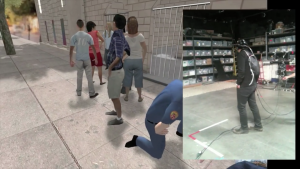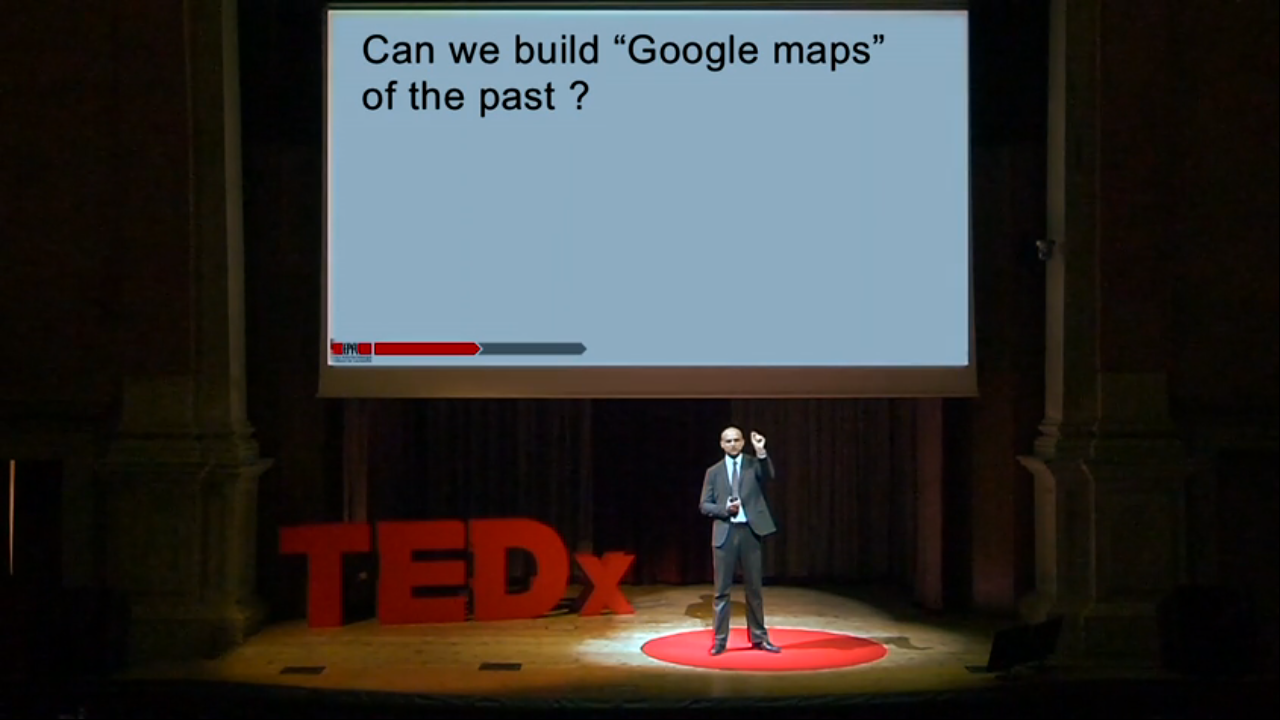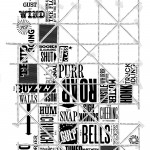
Category: Chapter 6 Graphics, Digital Media, and Multimedia
 Drones are, in essence, flying robots, capable of carrying out all kinds of tasks, from acts of war to acts of art. This Huffington Post article focuses on the use of drones to capture video footage that would be difficult or impossible to get by conventional means.
Drones are, in essence, flying robots, capable of carrying out all kinds of tasks, from acts of war to acts of art. This Huffington Post article focuses on the use of drones to capture video footage that would be difficult or impossible to get by conventional means.
 In the last few years we’ve become accustomed to Google Earth and similar apps that give us the power to “go” almost anywhere in a matter of seconds. Massive geographical databases put the world at our fingertips. In this TED talk Frederic Kaplan describes a research project that adds another dimension—time—to our search capabilities. How long will it be before your phone is a digital time machine?
In the last few years we’ve become accustomed to Google Earth and similar apps that give us the power to “go” almost anywhere in a matter of seconds. Massive geographical databases put the world at our fingertips. In this TED talk Frederic Kaplan describes a research project that adds another dimension—time—to our search capabilities. How long will it be before your phone is a digital time machine?
ted.com/talks/frederic_kaplan_how_i_built_an_information_time_machine.html
 Don’t look now, but your phone might be a looking glass that enables you to peer into a unique, irresistible fantasy world. Technologists and artists at Google and Motorola just introduced Windy Day, a free virtual reality interactive story that may represent a whole new form of narrative storytelling. And if you own a Moto X phone, it’s yours for free. Steven Levy tells the story behind the story in this Wired article.
Don’t look now, but your phone might be a looking glass that enables you to peer into a unique, irresistible fantasy world. Technologists and artists at Google and Motorola just introduced Windy Day, a free virtual reality interactive story that may represent a whole new form of narrative storytelling. And if you own a Moto X phone, it’s yours for free. Steven Levy tells the story behind the story in this Wired article.
wired.com/business/2013/10/motorola-google-mouse
 Every day millions of people share text, photos, music, and video on the Internet. But until recently, there hasn’t been much interest in sharing non-musical sound. According to Wired contributor Clive Davis, we may be entering a new age of Internet audio. How does that sound to you?
Every day millions of people share text, photos, music, and video on the Internet. But until recently, there hasn’t been much interest in sharing non-musical sound. According to Wired contributor Clive Davis, we may be entering a new age of Internet audio. How does that sound to you?
wired.com/opinion/2013/08/ap_thompson/
 MIDI is the communication standard for electronic musical instruments. This 30-year-old technology has revolutionized the music industry. This NPR piece explains why and how MIDI made digital music happen.
MIDI is the communication standard for electronic musical instruments. This 30-year-old technology has revolutionized the music industry. This NPR piece explains why and how MIDI made digital music happen.
npr.org/blogs/therecord/2013/05/12/182874125/the-midi-revolution-synthesizing-music-for-the-masses
Was Bob Dylan a creative genius or a thief? What about Steve Jobs? Or that kid down the block who posts cut-and-paste videos on YouTube? In this entertaining short TED talk, Kirby Ferguson argues that every creation is, to some degree, a remix. Do our intellectual property laws need to change to embrace, rather than outlaw, remixes?
ted.com/talks/kirby_ferguson_embrace_the_remix.html
Will Your Glasses Be Smarter than You?
Project Glass
The brave new world of augmented reality may be closer than you think. If it becomes a popular product, Google’s Project Glass may make touch-screen smart phones seem positively old-fashioned. This Huffington Post article describes this intriguing wearable technology, and the video gives you a sense of what it might feel like to spend time behind the lenses of smart glasses.
http://www.npr.org/blogs/pictureshow/2012/03/01/147665130/shoot-now-focus-later-a-little-camera-to-change-the-game
Digital cameras have transformed the way we take and edit photographs, but a digital picture is still just a picture. Until now. This groundbreaking camera doesn’t just create a two-dimensional representation of a scene; it captures 3D light patterns that can be focused and refocused long after the shutter button is pressed. Will it change photography forever?
In this five-minute TED talk, Ian Ritchie gives one of the best short answers to this question we’ve seen. At the same time, he confesses to making a multi-million dollar misjudgment. Fascinating and fun.
[ted id=1244]